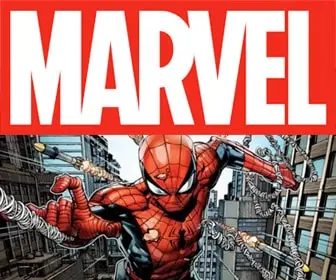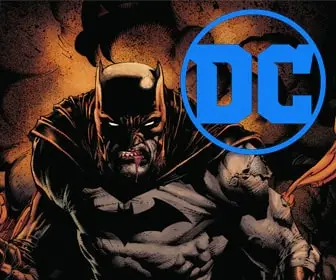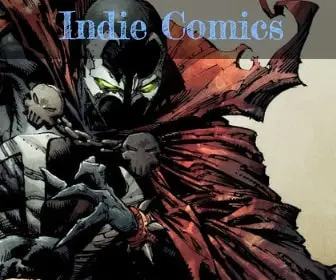
Create Your Own Comic: Crafting the Perfect Script
Welcome to the World of Comic Book Creation!
Hello, aspiring comic book creators! In this week’s installment of “Create Your Own Comic,” we dive into the heart of any great comic book — the script. Writing a comic book script is where imagination meets the page. It’s the blueprint of your story, where you lay out the narrative, dialogue, and actions that will later come to life through illustrations. Let’s embark on this exciting journey of scripting your very own comic book!

Understanding the Comic Script Format
Unlike traditional prose or screenplays, comic scripts have a unique format. There’s no universal standard, but most scripts include:
- Page Numbering: Start each new page of your script with a page number.
- Panel Descriptions: Break down each page into panels and describe what happens in each. Be as vivid and detailed as possible.
- Character Dialogue and Captions: Include the dialogue for each character and any narrative captions within the panels.
Step 1: Conceptualize Your Story
Develop a Story Idea: Begin with a concept. What’s your story about? Who are the characters? What is the world like? Jot down your ideas, no matter how rough.
Create an Outline: Structure your story. Plan the beginning, middle, and end. An outline will guide you through the narrative arc and help maintain consistency.
Step 2: Scripting Panel by Panel
Visualize Each Scene: Think visually. How will each part of your story translate into images? What’s the focal point of each panel?
Write Descriptive Panels: Provide clear descriptions for artists (or yourself, if you’re illustrating). Include setting, character actions, expressions, and key visual elements.
Dialogue and Captions: Write dialogue that’s concise and impactful. Remember, space in a comic panel is limited. Captions can provide additional context or internal monologue.
Step 3: Develop Characters and Dialogue
Character Voices: Give each character a distinct voice. How they speak should reflect their personality and background.
Show, Don’t Tell: Comics are a visual medium. Let the images do the talking when possible. Use dialogue to enhance or complement the visuals, not repeat them.
Step 4: Pacing Your Story
Balance Text and Imagery: Too much text can overwhelm a panel. Balance dialogue and description with the artwork.
Pace the Action: Control the story’s rhythm through panel size and layout. Larger panels can slow down time, while smaller, numerous panels can speed up the action.
Step 5: Revising and Refining
Edit Your Script: Like any first draft, your script will need revisions. Read it aloud, check for clarity and flow, and make sure it aligns with your initial vision.
Feedback is Key: Share your script with friends, fellow creators, or a writing group. Constructive feedback is invaluable.
Software
Writing a comic book script requires balancing narrative, dialogue, and visual instructions. Several scriptwriting apps cater to these needs, each with its strengths and weaknesses. Here’s an overview of some popular choices:
1. Final Draft
Strengths:
- Industry Standard: Widely used in professional screenwriting, including comic scriptwriting.
- Formatting Tools: Offers advanced formatting options tailored for scriptwriting.
- Collaboration Features: Allows multiple users to work on the script simultaneously.
Weaknesses:
- Cost: It’s a premium tool, making it less accessible for hobbyists or beginners.
- Learning Curve: Due to its extensive features, it might take time for new users to get accustomed.
2. Celtx
Strengths:
- Versatility: Offers specific tools for comic scriptwriting along with screenplays and stage plays.
- Cloud-Based: Enables online collaboration and access from anywhere.
- User-Friendly: Intuitive interface that’s great for beginners.
Weaknesses:
- Subscription Model: Monthly fee can be a barrier for some users.
- Limited Offline Access: Being cloud-based, it relies heavily on internet connectivity.
3. Scrivener
Strengths:
- Organizational Tools: Excellent for organizing notes, outlines, and research alongside your script.
- Customizable: Highly flexible, allowing users to create their templates.
- One-Time Purchase: No recurring fees.
Weaknesses:
- Complexity: Its multitude of features can be overwhelming for new users.
- Lacks Specialized Script Formatting: Not as streamlined for scriptwriting as Final Draft or Celtx.
4. Adobe Story
Strengths:
- Integration with Adobe Products: Easily integrates with other Adobe software, beneficial for those already in the Adobe ecosystem.
- Collaborative Features: Supports online collaboration.
Weaknesses:
- Discontinued: Adobe discontinued Story, making it a less viable long-term option.
5. WriterDuet
Strengths:
- Real-Time Collaboration: Designed for multiple users to work on a script simultaneously.
- Flexibility: Available in both free and premium versions.
- Cloud-Based: Accessible from any device with internet connectivity.
Weaknesses:
- Dependent on Internet: For the cloud-based features, an internet connection is needed.
- Limited Features in Free Version: Some advanced features are only in the paid version.
6. Microsoft Word or Google Docs
Strengths:
- Accessibility: Widely available and familiar to most users.
- Basic Needs Covered: Suitable for those who prefer a straightforward, text-based approach.
Weaknesses:
- Lacks Advanced Scriptwriting Features: No specialized tools for formatting or collaboration specific to scriptwriting.
- Manual Formatting: Requires more effort to format the script properly.
Denouement: Bringing Your Vision to Life
The script is the foundation of your comic book. It’s where you set the stage for the visual storytelling to follow. Remember, there’s no right or wrong way to write a comic script. It’s about finding the method that works best for you and your story. Be creative, be bold, and most importantly, have fun with it! Next week, we’ll dive into the world of drawing and panel layout, bringing your scripted scenes to visual life. Until then, keep those creative juices flowing!






